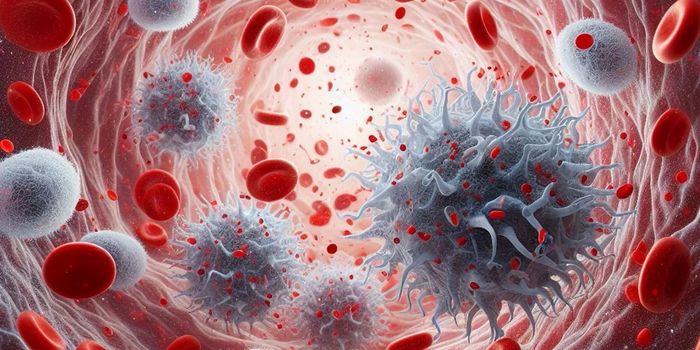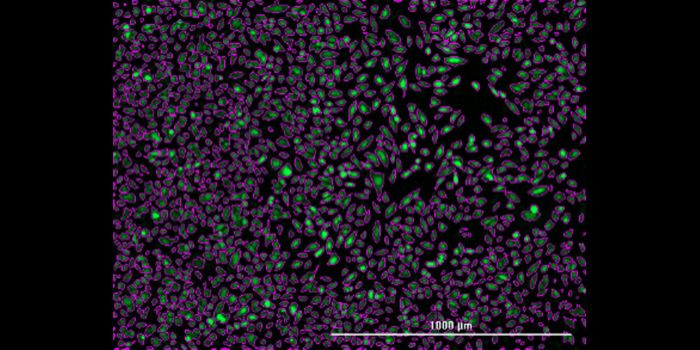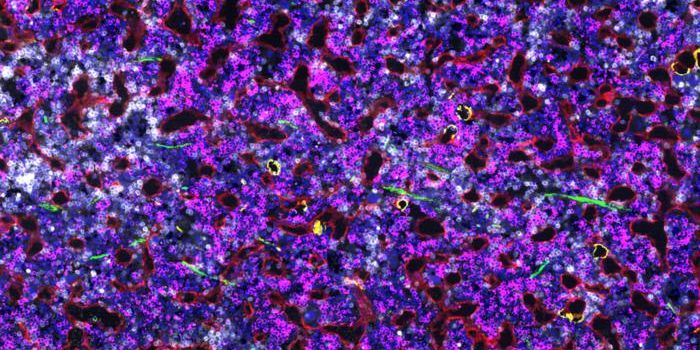Tumor Metastasis Fueled by High Fat Diet
To uproot itself and start seeding tumors in other parts of the body, cancer cells must have enough energy for the journey. While this process of metastasis has eluded cancer researchers for years, a new discovery in how cancer uses fat to fuel its journey may be the key to stopping cancer’s spread.
By studying human oral cancer cells in mice, scientists at the Barcelona's Institute for Research in Biomedicine (IRB) honed in on a singular protein, known as CD36. This fatty acid receptor helps cells take up lipids or fats from their environment. The key is that the protein is present only on a select number of tumor cells. And the same tumor cells with CD36 are the ones that can break free from their primary location to colonize new territories in the body, the researchers found.
"Although we have not yet tested this in all tumour types, we can state that CD36 is a general marker of metastatic cells, the first I know of that is generally specific to metastasis," said Aznar Benitah, professor at the Stem Cell and Cancer Lab at IRB in Barcelona. They report that other types of tumors, including melanoma, ovarian, bladder, and breast cancer, have this marker when metastasized.
The researchers theorized that CD36 increases fat storage for the tumor cells, which enables them to have enough energy to migrate to other parts of the body. Whereas normal cells are typically conditioned to thrive only in certain niches, tumor cells that migrate must overcome the barriers of travel.
“Metastasis takes a lot of energy,” said Ernst Lengyel, a gynaecological oncologist at the University of Chicago in Illinois, who was not involved in the project. “As a cell you must be able to adapt to changing environments, reprogram protein expression, establish a beachhead and start proliferating as soon as possible.”
Benitah’s team also found that a high-fat diet seemed to influence CD36 and metastasis. Mice fed with a high-fat diet and an injection of human oral cancer cells were twice as likely to have bigger and more frequent cancer metastasis. This has big implications for cancer progression and the Western diet, which is plentiful in fats and sugars.
"In mice inoculated with human tumour cells, there appears to be a direct link between fat intake and an increase in metastatic potential through CD36. More studies are needed to unravel this intriguing relationship, above all because industrialised countries are registering an alarming increase in the consumption of saturated fats and sugar," explained Benitah. "Fat is necessary for the function of the body, but uncontrolled intake can have an effect on health, as already shown for some tumours such as colon cancer, and in metastasis, as we demonstrate here."
But by honing on CD36, the team may have found a target to stop metastasis. That is, blocking the receptor with an antibody against CD36 could be the key. In the same mouse model of human oral cancer, mice treated with the CD36 antibody either led to a reduction in metastasis or a complete remission.
"We expect this study to have a big impact on the scientific community and to further advances in metastasis research, and we hope to be able to validate the potential of CD36 as an anti-metastasis treatment. Things like this don't happen every day,” said Benitah.
Additional sources: World Cancer Research, Nature, LA Times









